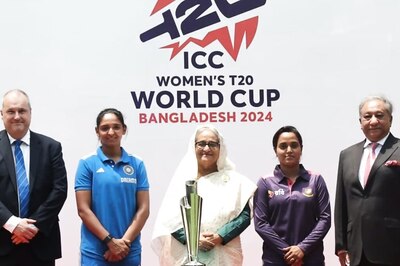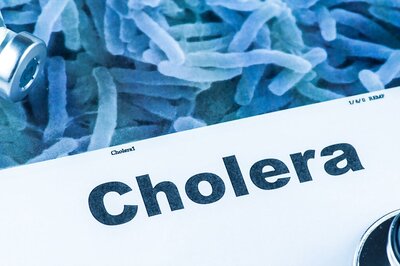
views
New Delhi: Aslam began to smoke marijuana at the age of ten, lured into it by friends. Soon he graduated to other drugs, mostly heroin, stealing mobile phones and snatching gold necklaces from around women's necks to pay for his habit.
"When I tried it, I really liked it - I had a feeling of stillness all around me," said Aslam, now 17, of his drift into drugs and peer pressure - and the threat of HIV.
"Yes, I am afraid but when you are under the influence of drugs, you do not realise anything," he added.
"When we do not have money then we just borrow each other's syringe and inject it."
As India applauds a sharp drop in the number of fresh AIDS infections over the past decade, health workers worry about the increasing number of young drug users who are being left out of efforts to reduce the spread of HIV, the virus that causes AIDS.
With 2.3 million reported cases of AIDS, India - like sub-Saharan Africa - is at the front lines of the fight against the deadly virus.
Progress is being made. A UNAIDS report marking 30 years of the discovery of the disease said India's rate of new HIV infections fell by more than 50 percent between 2001-2009 - the global rate dropped by 25 percent.
But activists and others warn that an increasing number of substance-addicted children and adolescents who inject drugs are being left out of the fight.
"They are on the fringes of society, they are often excluded by their families and live on the streets and have no means of support, financial support," said Charles Gilks, country co-ordinator of UNAIDS for India."
"They sometimes have to resort to prostitution or petty crime to get enough money to service their habit."
More than 15 percent of the 200,000 plus injecting drug users (IDUs) in India are HIV positive against a global average of 10 percent, AIDS experts say. In some areas, HIV positive cases among IDUs have been found to be as high as 50 percent.
Within this population, young people are at an especial risk for a wide range of factors, from the economic struggles of poverty to social mores that make it difficult to discuss emotionally fraught issues such as sexuality.
Challenges, transitions
"One of the key challenges for the adolescent population in India - and that is a massive number of people - is to give them effective life skills that truly equip them for growing up, from being a child to becoming an adult and one of the key transitions that children face is starting to become sexually active," Gilks said.
"It is quite a challenge at the moment because there are strong views by different religious communities around what exactly life skills education, or what we used to call sex education, should consist of."
In addition, treatment access for children is lower than for adults, with only 28 percent of eligible children receiving anti-retroviral therapy in 2009, compared to 36 percent coverage for people of all ages.
But at least 420,000 children were receiving anti-retroviral therapy at the end of 2010, a more than 50 percent increase since 2008.
Rajesh Kumar, founder of India's first rehabilitation centre for juveniles serving time in a Delhi prison, said this situation meant that young people were extremely vulnerable to the threat of HIV.
"This is one group which needs special attention because awareness level is nil. They do not know about HIV, they do not know the problem of drug-related issues and HIV," Kumar said.
He added that legal hurdles in screening children for HIV without parental consent meant many juveniles living away from their families were at risk of carrying the virus undetected - and then spreading it.
Through a combination of psychological counselling, meditation, and education, the centre aims to help reform and re-integrate adolescents into society.
Aslam, who is HIV-negative, is now off drugs and working as a peer educator with the centre, hoping he can help them avoid the fate of 36-year-old Ashok, who says that drugs have cost him everything he once held dear.
"Slowly I started taking smack (heroin) and once I started on it, I lost all goodness," the bleary-eyed Ashok said, injecting himself with a fresh dose.
"I have gained nothing ever since I started using drugs. I lost jobs, I lost work - I lost everything because of drugs."
















Comments
0 comment